December 2020
By Anna Kim
The 75th session of the UN General Assembly First Committee on disarmament and international security, held remotely this year due to the COVID-19 pandemic, revealed growing global concern over the decline of arms control and rising tensions between nations, particularly those armed with nuclear weapons.
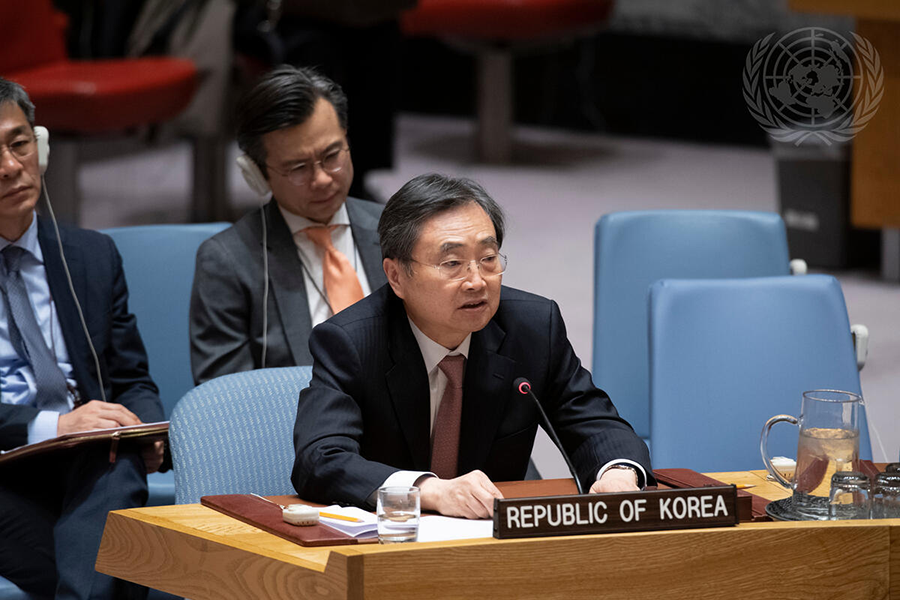 The European Union, Russia, and South Korea noted the challenges COVID-19 posed to nuclear disarmament, including the postponement of treaty-related meetings such as the nuclear Nonproliferation Treaty’s pending review conference, now deferred again from an already rescheduled early 2021 date. They also encouraged commitment to collective action and multilateralism. Others noted that the pandemic should raise awareness of biological threats and drive action at next year’s Biological Weapons Convention review conference.
The European Union, Russia, and South Korea noted the challenges COVID-19 posed to nuclear disarmament, including the postponement of treaty-related meetings such as the nuclear Nonproliferation Treaty’s pending review conference, now deferred again from an already rescheduled early 2021 date. They also encouraged commitment to collective action and multilateralism. Others noted that the pandemic should raise awareness of biological threats and drive action at next year’s Biological Weapons Convention review conference.
Tension between nuclear-armed powers was highlighted by separate, unsuccessful U.S.-Russian talks on an extension of the 2010 New Strategic Arms Reduction Treaty (New START). In the First Committee, Russia reiterated that Moscow stands ready to extend the pact without preconditions, a move that would “buy us time to consider future approaches to arms control.” The United States responded by reaffirming its pursuit of an agreement that “addresses all nuclear warheads” and expressing concern with Russia’s investment in “novel nuclear delivery systems and nuclear weapons that are not constrained by New START.” The impasse suggests that the two sides will not resolve the matter before the end of the Trump administration in January 2021.
Multiple states continued to express concern over the U.S. withdrawal from the Joint Comprehensive Plan of Action (JCPOA), the 2015 arms control agreement limiting Iran’s nuclear program, and Iran’s subsequent buildup of low-enriched uranium exceeding treaty limits.
EU nations said they “deeply regret” the U.S. decision to withdraw and reimpose sanctions on Iran and “strongly urge Iran to refrain from any further actions that are inconsistent with its JCPOA commitments and return to full JCPOA implementation without delay.”
Unlike in 2019, Iran did not mention its enrichment activities or their reversibility. The United States refrained from commenting on the JCPOA at all during its general debate remarks.
Opinions were divided on how to address North Korea’s nuclear program and security on the Korean peninsula. China blamed the United States for “the deadlock of the [U.S.-North Korean] dialogue regarding the nuclear issue on the Korean peninsula” and asserted its opposition to “unilateral sanctions and long-arm jurisdiction beyond the mandates” of UN Security Council resolutions.
The EU and some European countries, in contrast, expressed concern over North Korea’s missile launches and repeated their support for denuclearization. Poland called North Korean denuclearization “an absolute imperative and priority for the entire international community.” South Korea took a more optimistic tone in its statement. Cho Hyun, South Korean ambassador to the United Nations, said that “[his] government’s resolve to advance the peace process remains unwavering and [South Korean leaders] sincerely hope that [North Korea] will return to the negotiating table.”
The Chemical Weapons Convention (CWC) and the Organisation for the Prohibition of Chemical Weapons (OPCW) also received significant attention during general debate in the wake of the August 2020 poisoning of Alexei Navalny, a Russian opposition leader, with a Novichok nerve agent. Russia has denied responsibility for the attack.
Absent verifiable attribution of the attack to Russia by the OPCW, the United States called on Moscow to “fulfill its obligations under the [CWC] by completely declaring and destroying its chemical weapons program under international verification.” The EU said that Russia should “fully cooperate” with the OPCW to ensure an “impartial international investigation.”
The use of chemical weapons in Syria also drew attention, with Germany urging that “all those who continue to support the Assad regime and to provide cover for its crimes—in particular the Russian Federation—[should] finally live up to their responsibility.”
Russia did not respond directly to criticism for the Navalny incident, instead introducing a resolution to update the UN Secretary-General’s Mechanism for Investigation of Alleged Use of Chemical and Biological Weapons (SGM). This was met with significant resistance by other states, which accused Russia of attempting to undermine the SGM’s authority.
The 2020 First Committee session approved 72 draft resolutions and decisions, but rejected two: Russia’s resolution on the SGM and one on the 2021 Disarmament Commission session. The votes revealed continuing disunity between nuclear-weapon and non-nuclear-weapon states, with all nine nuclear-armed states voting against a resolution on the Treaty on the Prohibition of Nuclear Weapons (TPNW) even as the treaty reached the 50 accessions needed to enter into force in January 2021.
The United States cast one of two votes, along with North Korea, against the resolution on the 1996 Comprehensive Test Ban Treaty (CTBT), citing unproven claims that Russia and China continue to conduct nuclear weapons test explosions. This was the first time the United States did not abstain from the vote, which fueled concerns that the Trump administration could be planning to resume nuclear weapons testing, as The Washington Post first reported in May. The United States was also the sole vote against the resolution on the Arms Trade Treaty for the second year in a row. President Donald Trump announced in April 2019 that Washington would drop out of the treaty.
Resolutions in support of the implementation of the Mine Ban Treaty and the Convention on Cluster Munitions passed with no votes against, representing continued widespread support for those initiatives. The resolution on a nuclear-weapon-free zone in the Middle East also passed 169–2–1, with only the United States and Israel voting against it.
As in previous years, First Committee member states were unable to reach consensus on a legal approach to regulating arms in outer space. Five resolutions were introduced on the topic, which reflected highly varied perspectives on disarmament. The United States, Russia, and China each accused others of having intentions to weaponize space while emphasizing their own commitment to developing a legal infrastructure. The First Committee also discussed cybersecurity and emerging technologies.
|
Russia Fails to Weaken UN Chemical Weapons Investigations A Russian effort to undermine the UN Secretary-General’s Mechanism for Investigation of the Alleged Use of Chemical and Biological Weapons (SGM) was rejected by the UN General Assembly First Committee on Nov. 4. Moscow had offered the resolution and called for a review of SGM guidelines ahead of the First Committee vote, arguing that the guidelines had not been updated since the late 1990s. The mechanism grants the secretary-general authority to launch an independent investigation into alleged incidents of chemical or biological weapons use on request by a UN member state. For example, the SGM investigated the use of chemical weapons in Syria in 2013, prior to Syria’s accession to the Chemical Weapons Convention. Dmitry Polyanskiy, Russia’s UN representative, said the SGM has “clearly become obsolete.” The European Union criticized Russia’s efforts as misguided and politically driven. Speaking on behalf of the group, Germany recalled an attempt by Russia in December 2019 to criticize further strengthening of the mechanism, arguing that doing so would create a de facto legally binding verification regime for the Biological Weapons Convention. “Against this background,” Germany’s representative told the First Committee on Nov. 4, “it seems unlikely that the motive behind this resolution is to strengthen [the SGM].” “It is not immediately clear why there would be an urgency to review the guidelines and principles again,” he added, noting that Russia’s proposed resolution threatened the SGM’s independence by subordinating it to the UN Security Council. The resolution proposed that the Security Council play a greater role in the mechanism’s work, specifically with respect to investigating incidents of biological weapons use. The resolution failed to pass the First Committee with 31 votes in favor, 63 against, and 67 abstentions.—JULIA MASTERSON |





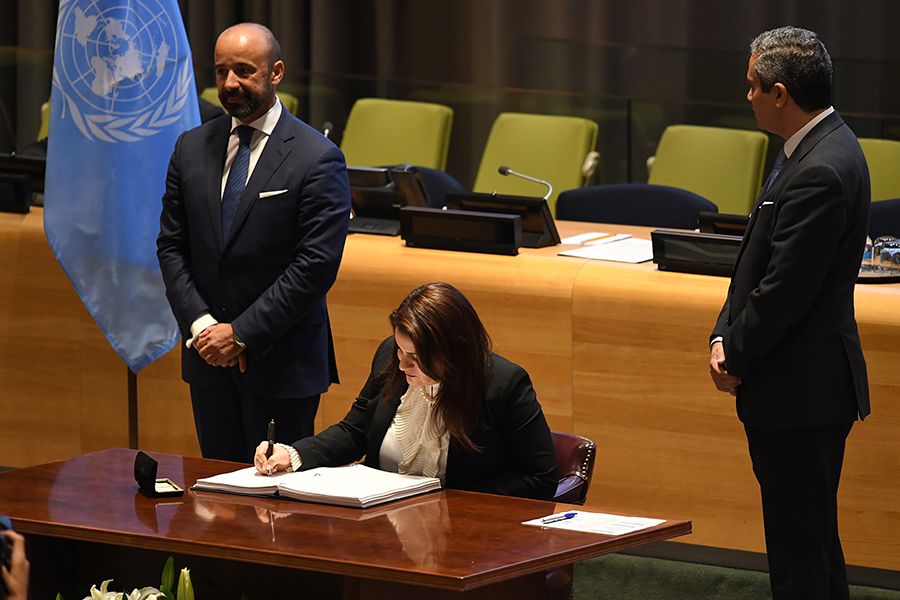 For the first time since the invention of the atomic bomb, nuclear weapons development, production, possession, use, and threat of use and the stationing of another country’s nuclear weapons on a state-party's national territory are all expressly prohibited in a global treaty. Negotiations on the TPNW were concluded in July 2017 after a negotiating conference involving more than 120 states. The initiative emerged after a series of three international conferences on the humanitarian impacts of nuclear weapons held in 2013–14.
For the first time since the invention of the atomic bomb, nuclear weapons development, production, possession, use, and threat of use and the stationing of another country’s nuclear weapons on a state-party's national territory are all expressly prohibited in a global treaty. Negotiations on the TPNW were concluded in July 2017 after a negotiating conference involving more than 120 states. The initiative emerged after a series of three international conferences on the humanitarian impacts of nuclear weapons held in 2013–14.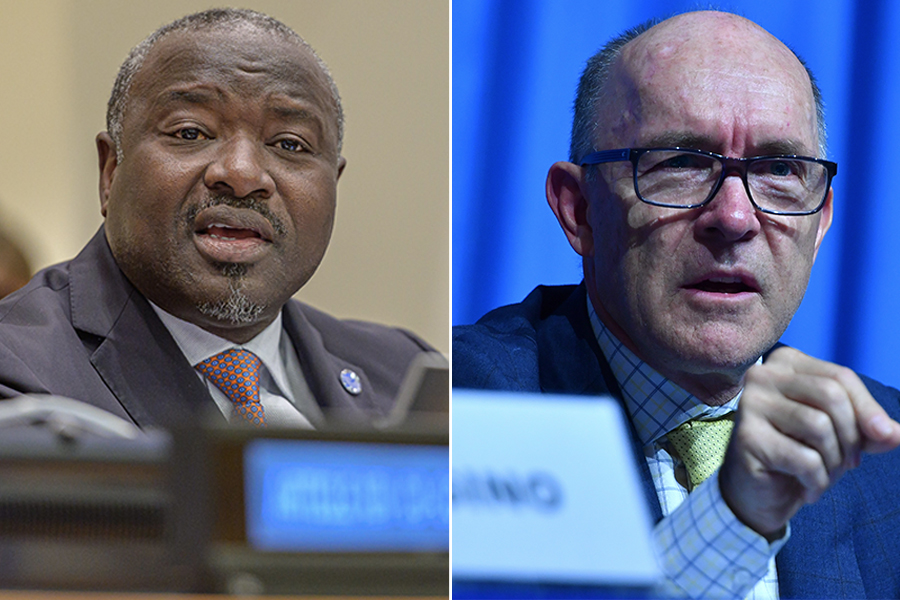 The Vienna-based CTBTO is tasked with building up and operating the treaty’s global verification regime in preparation for the treaty’s entry into force, as well as promoting its entry into force. The organization has an annual budget of $128 million that comes from member state contributions assessed on the UN dues scale. More than 70 nations were behind in their dues in July, a larger number than usual, in part due to the economic impacts of the COVID-19 global pandemic. According to the treaty, nations that have extensive arrears may not vote in CTBTO decisions.
The Vienna-based CTBTO is tasked with building up and operating the treaty’s global verification regime in preparation for the treaty’s entry into force, as well as promoting its entry into force. The organization has an annual budget of $128 million that comes from member state contributions assessed on the UN dues scale. More than 70 nations were behind in their dues in July, a larger number than usual, in part due to the economic impacts of the COVID-19 global pandemic. According to the treaty, nations that have extensive arrears may not vote in CTBTO decisions.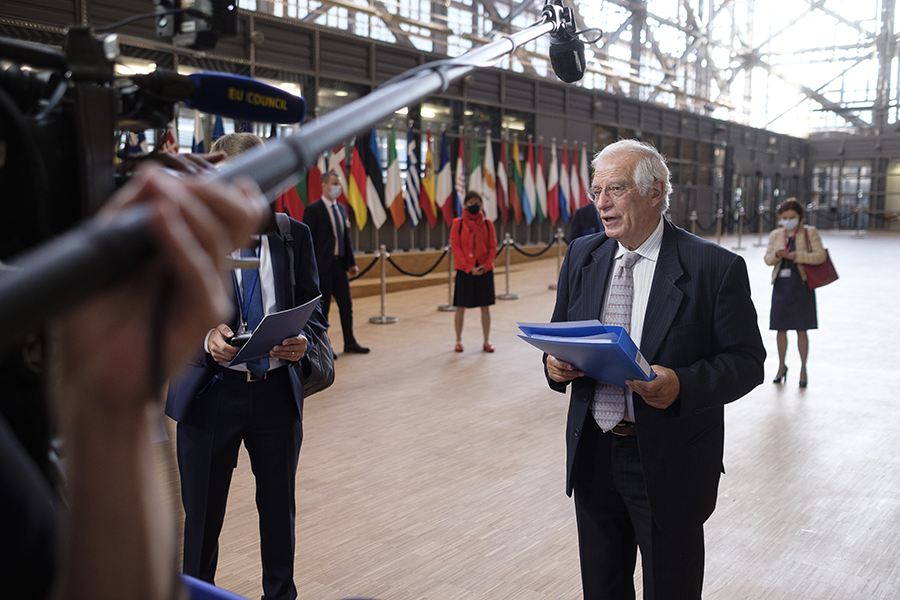 UN sanctions on Iran were lifted or modified in 2016 as part of the Joint Comprehensive Plan of Action (JCPOA), the seven-party deal that limited Iran’s nuclear activities. Recently, the Trump administration asserted on Sept. 19 that the sanctions had been restored after the United States initiated a so-called snapback mechanism, created by UN Security Council Resolution 2231, which contains language allowing participants in the nuclear deal to reimpose UN sanctions in a manner that cannot be vetoed. The U.S. withdrawal from the JCPOA in 2018 has created a dispute over U.S. standing to demand the return of UN sanctions under the terms of Resolution 2231.
UN sanctions on Iran were lifted or modified in 2016 as part of the Joint Comprehensive Plan of Action (JCPOA), the seven-party deal that limited Iran’s nuclear activities. Recently, the Trump administration asserted on Sept. 19 that the sanctions had been restored after the United States initiated a so-called snapback mechanism, created by UN Security Council Resolution 2231, which contains language allowing participants in the nuclear deal to reimpose UN sanctions in a manner that cannot be vetoed. The U.S. withdrawal from the JCPOA in 2018 has created a dispute over U.S. standing to demand the return of UN sanctions under the terms of Resolution 2231.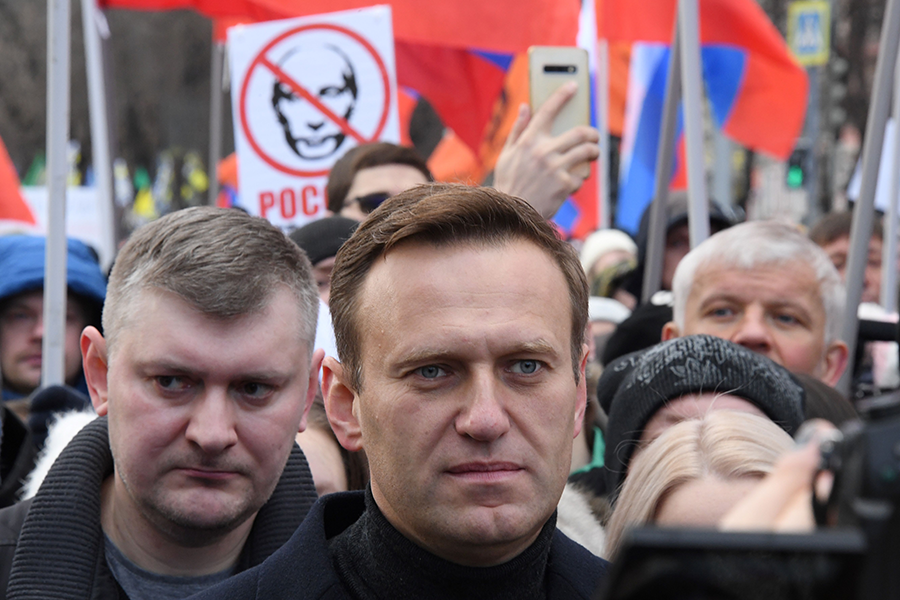 Navalny was reportedly given the agent on Aug. 20 in Russia, where he received initial medical treatment before being flown to Germany, where doctors assessed that he had been exposed to the nerve agent Novichok, a substance banned under the CWC. The finding was corroborated by laboratories in France and Sweden, according to German government spokesman Steffen Seibert. He said on Sept. 14 that samples of the nerve agent detected in Navalny’s system were also sent to The Hague for additional tests at the Organisation for the Prohibition of Chemical Weapons (OPCW), the treaty’s implementing body. He called on Russia to “explain these events.”
Navalny was reportedly given the agent on Aug. 20 in Russia, where he received initial medical treatment before being flown to Germany, where doctors assessed that he had been exposed to the nerve agent Novichok, a substance banned under the CWC. The finding was corroborated by laboratories in France and Sweden, according to German government spokesman Steffen Seibert. He said on Sept. 14 that samples of the nerve agent detected in Navalny’s system were also sent to The Hague for additional tests at the Organisation for the Prohibition of Chemical Weapons (OPCW), the treaty’s implementing body. He called on Russia to “explain these events.”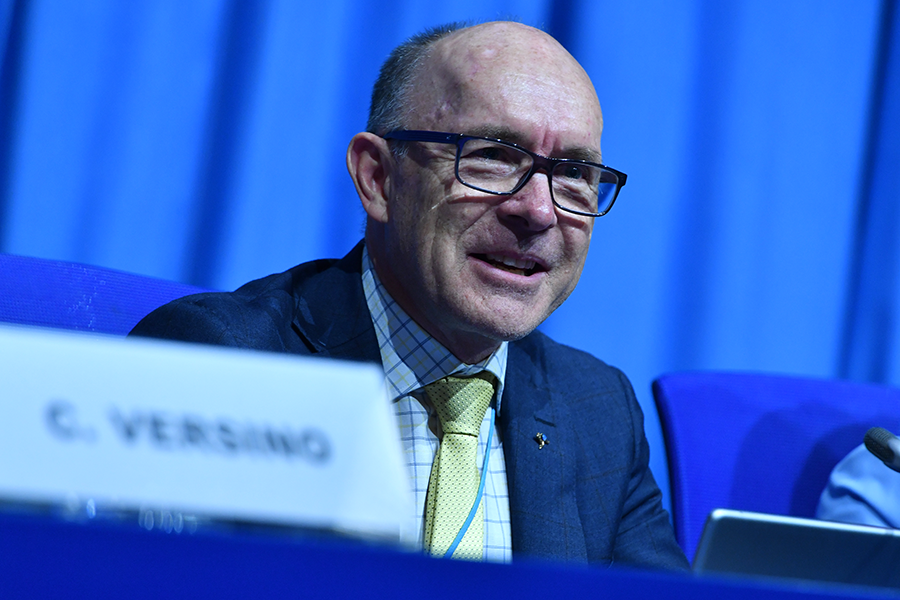 The process for formal nomination of candidates began Sept. 16 and will close Oct. 9. So far, one candidate, from Australia, has formally been nominated to lead the organization. Additional candidates are expected to come forward before the October deadline, according to diplomats in Vienna.
The process for formal nomination of candidates began Sept. 16 and will close Oct. 9. So far, one candidate, from Australia, has formally been nominated to lead the organization. Additional candidates are expected to come forward before the October deadline, according to diplomats in Vienna.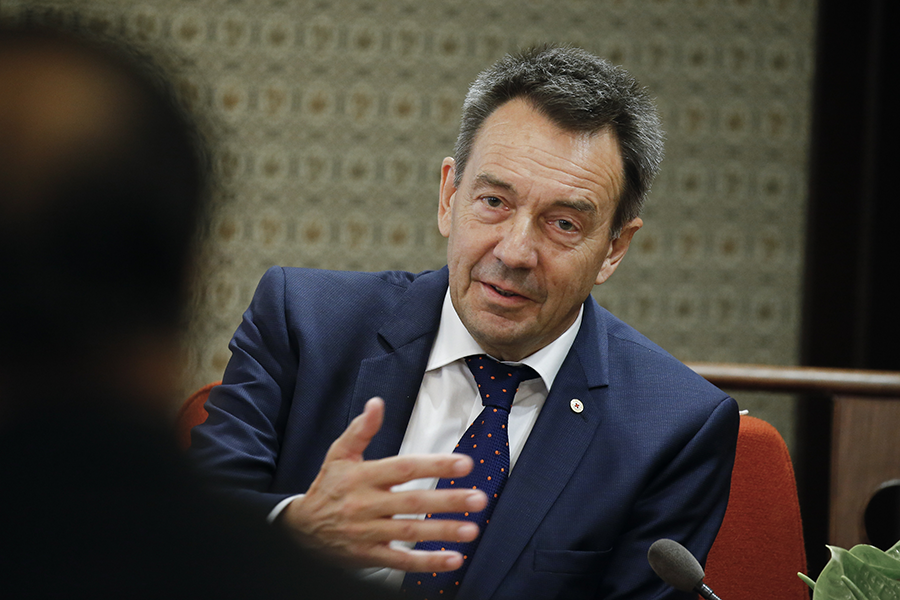 Concern over the coronavirus pandemic spurred conference organizers to conduct the meeting via written statements only, rather than using in-person or virtual platforms that allowed for real-time dialogue.
Concern over the coronavirus pandemic spurred conference organizers to conduct the meeting via written statements only, rather than using in-person or virtual platforms that allowed for real-time dialogue.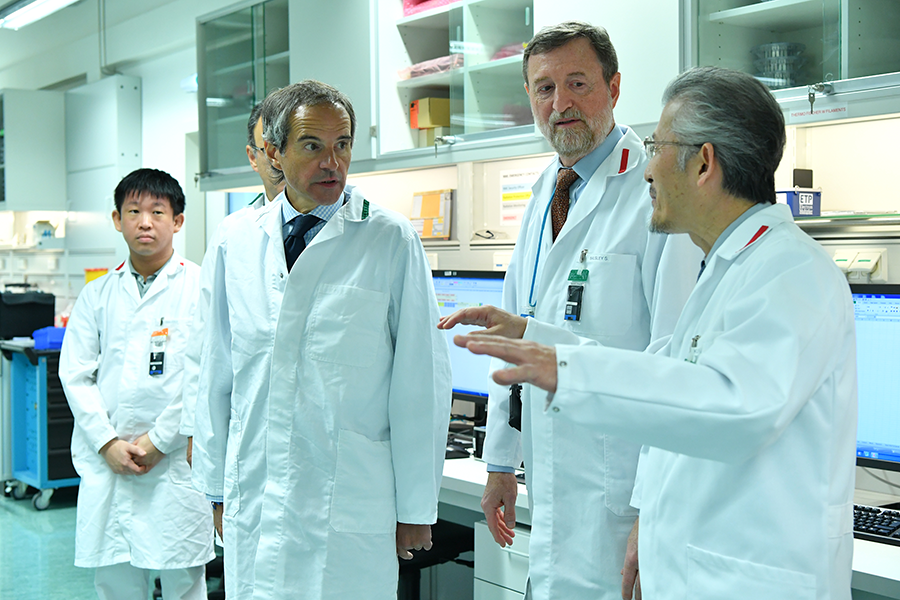 The annual safeguards implementation report reflects the global scale of the IAEA’s role in ensuring that nuclear materials in peaceful facilities are not diverted to military uses. It summarizes the agency’s activities to implement safeguards across member states and its conclusion about the status of nuclear materials in states where safeguards are conducted. The agency has given the report only to its member states. A copy of the document was provided to
The annual safeguards implementation report reflects the global scale of the IAEA’s role in ensuring that nuclear materials in peaceful facilities are not diverted to military uses. It summarizes the agency’s activities to implement safeguards across member states and its conclusion about the status of nuclear materials in states where safeguards are conducted. The agency has given the report only to its member states. A copy of the document was provided to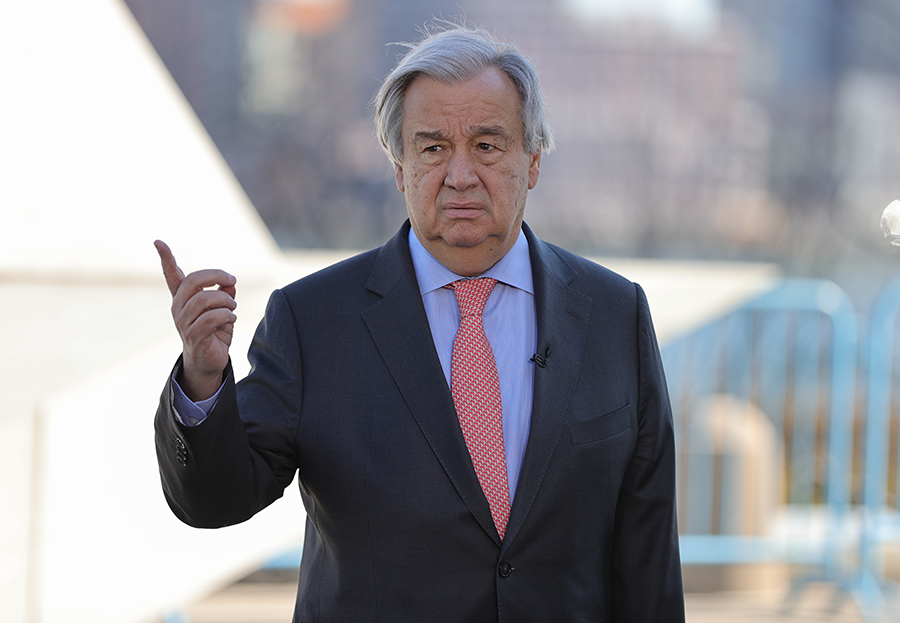 The council began to consider ways to back Guterres after his March 23 proposal. “The fury of the virus illustrates the folly of war. That is why today, I am calling for an immediate global ceasefire in all corners of the world. It is time to put armed conflict on lockdown and focus together on the true fight of our lives,” he said.
The council began to consider ways to back Guterres after his March 23 proposal. “The fury of the virus illustrates the folly of war. That is why today, I am calling for an immediate global ceasefire in all corners of the world. It is time to put armed conflict on lockdown and focus together on the true fight of our lives,” he said.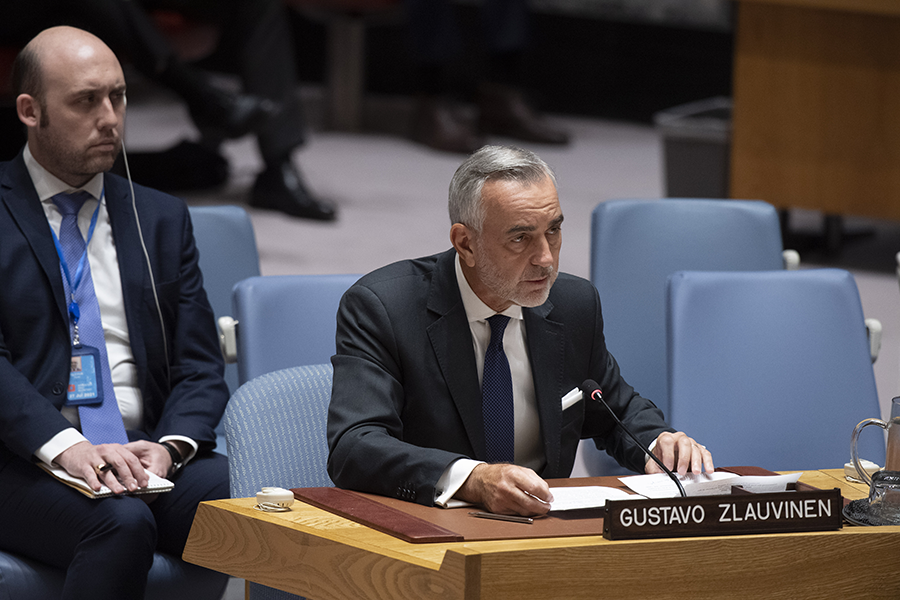 One of the largest conferences that has been postponed is the 10th review conference of the nuclear Nonproliferation Treaty (NPT), which will now take place no later than April 2021. (See
One of the largest conferences that has been postponed is the 10th review conference of the nuclear Nonproliferation Treaty (NPT), which will now take place no later than April 2021. (See